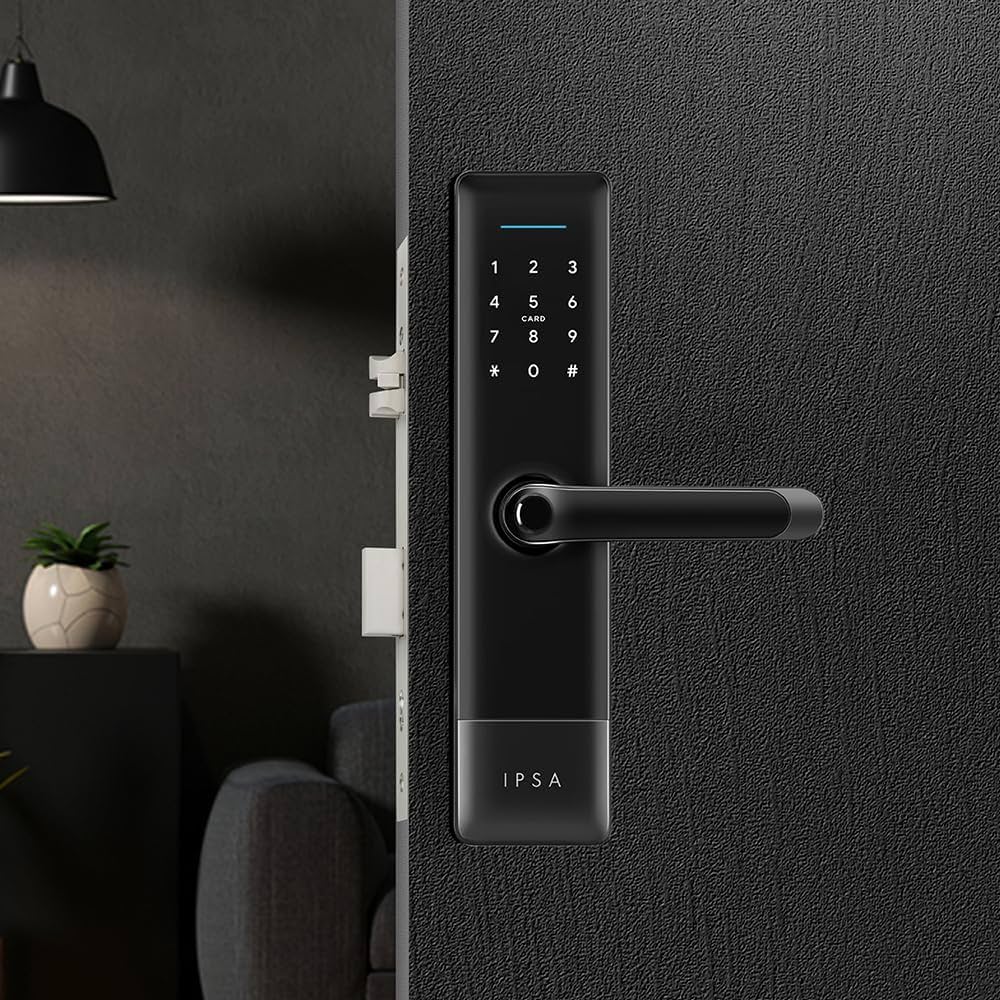When it comes to modernizing your home security, smart locks may seem like the epitome of convenience. However, before you fully commit to this advanced technology, it’s essential to consider the potential drawbacks that come with it. Smart locks, although cutting-edge, can introduce a set of challenges that might give you pause. Check Smart Lock in Hyderabad, Gurgaon and Delhi
Cybersecurity Vulnerabilities
- When considering the use of smart locks, it’s crucial to be aware of the prevalent cybersecurity vulnerabilities that could potentially compromise the security of your home or property. Smart locks, while convenient, aren’t immune to data breaches and remote hacking attempts. Data breaches involving smart locks can expose sensitive information about your property and daily routines, making you susceptible to targeted attacks.
- Remote hacking, a common cybersecurity threat, can allow malicious individuals to gain unauthorized access to your smart lock system, bypassing physical security measures and putting your home at risk.
- To mitigate these risks, it’s essential to regularly update your smart lock’s firmware and software to patch any known vulnerabilities. Additionally, using strong, unique passwords and enabling two-factor authentication can add layers of security to your smart lock system. It’s also advisable to monitor your smart lock system for any unusual activity and promptly address any security issues that may arise.

Compatibility With Older Devices
- Consider the potential challenges that may arise when integrating smart locks with older devices to ensure seamless compatibility and functionality. When dealing with compatibility between smart locks and older devices, interoperability challenges can become a significant issue. Older devices may lack the necessary technology or protocols to communicate effectively with smart locks, leading to functionality and security concerns.
- One of the primary issues that can arise is technology obsolescence. Older devices may not receive software updates or support from manufacturers, making them incompatible with the latest smart lock features or security enhancements. This can create a gap in functionality and compromise the overall security of the smart lock system.
- Moreover, interoperability challenges can result in unreliable performance, where older devices may struggle to communicate consistently with smart locks, leading to operational disruptions or failures. It’s crucial to assess the compatibility of older devices with smart locks carefully before integration to avoid potential issues and ensure a smooth user experience.
Malfunctions Leading to Lockouts
- In navigating the realm of smart locks, vigilance is paramount as malfunctions can potentially lead to lockouts, posing significant security risks and inconveniences. One common issue that may result in lockouts is a malfunction in the smart lock’s internal mechanisms, whether due to wear and tear or electronic failures. These malfunctions can render the lock unresponsive to commands, leaving you locked out of your own property. Moreover, user error, such as forgetting to change batteries or incorrectly installing the lock, can also contribute to lockouts.
- When faced with a lockout due to smart lock malfunctions, the consequences can be frustrating and costly. Not only do you risk being unable to access your home or office promptly, but you may also incur repair costs to fix the malfunctioning smart lock. Additionally, the time and effort required to address these malfunctions and potential lockouts can disrupt your daily routine and compromise the security of your property. Therefore, it’s essential to stay informed about potential malfunctions, perform regular maintenance checks, and seek professional assistance when needed to prevent lockouts and minimize repair costs.
Also Read Digital door lock in Hyderabad , Delhi, Gurgaon
Potential Privacy Concerns
- Navigating the realm of smart locks, it’s essential to be aware of potential privacy concerns that can arise from the use of these devices. One major issue is data collection. Smart locks gather information about your comings and goings, creating a digital log of when your door is accessed. This data could potentially be misused or breached, leading to privacy violations.
- Moreover, hacking risks pose a significant threat. If a smart lock’s security features are compromised, malicious actors could gain unauthorized access to your home. This not only jeopardizes your physical safety but also exposes your personal information.
- Additionally, some smart lock manufacturers may store your data on their servers, raising concerns about how securely this information is stored and who’s access to it. To mitigate these risks, it’s crucial to thoroughly research the security measures implemented by smart lock providers and ensure that your device is regularly updated with the latest security patches.
Reliance on Power Sources
- Relying solely on power sources for smart locks can present a critical vulnerability in maintaining secure access to your home. The battery life of smart locks is a crucial factor to consider, as these locks are dependent on power to function properly. In the event of a power outage, traditional locks remain operational, allowing you to enter your home without any hindrances. However, smart locks may become inaccessible if their power source depletes, leaving you locked out until the batteries are replaced or power is restored.
- To mitigate the risks associated with power dependency, it’s essential to monitor the battery life of your smart lock regularly and have backup power options available. Investing in smart locks with long-lasting battery capabilities or those that offer alternative power sources, such as key override options, can provide added security and peace of mind. Additionally, being prepared with spare batteries or a contingency plan for power outages can help prevent unexpected lockouts and ensure continuous access to your home.
Conclusion
In conclusion, while smart locks offer convenience and modern security features, there are several disadvantages to consider. Cybersecurity vulnerabilities can put your home at risk, compatibility issues may arise with older devices, malfunctions could lead to lockouts, potential privacy concerns exist, and reliance on power sources could leave you locked out during a power outage. It’s important to weigh these drawbacks carefully before deciding if a smart lock is the right choice for your home security needs.
Leave a Reply